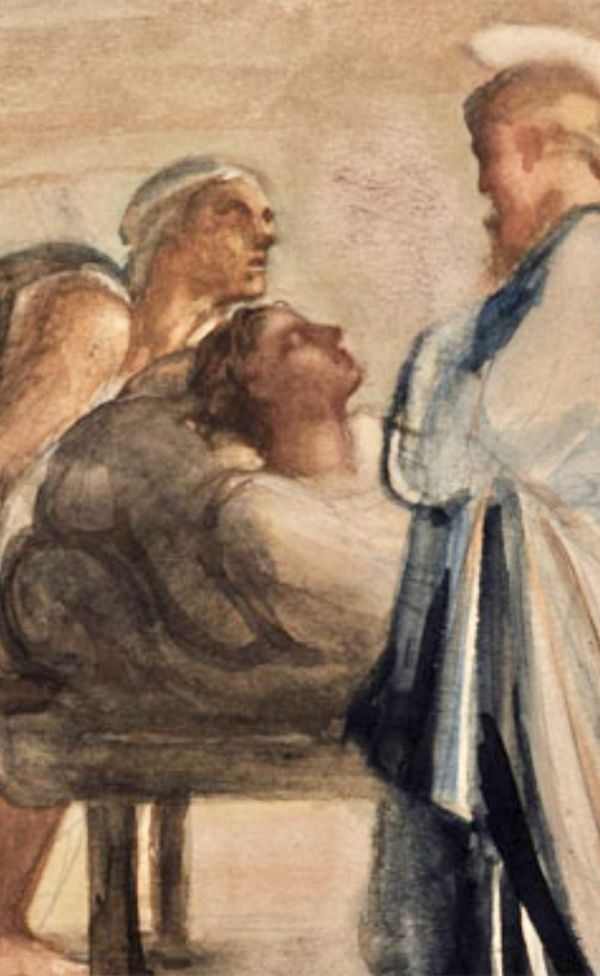The dark aspect, allied
(Lk 7:11-17)
Na'im means Delicious: symbol of all the pleasant and laughing places, where life flows quietly until the day when the carefree ends: smiles turn into tears and songs into lamentation.
There are always two parades, and two guides. The procession of death comes to collect everyone: it is precisely preceded by a corpse.
Destiny that knocks down, and we try to exorcise. But beyond distractions - it anguishes us to imagine that the physical end is a way without return.
Who can stop humanity’s march to the grave?
Here, in the opposite direction, comes another procession, preceded by the Lord of Life, who wins ours.
In the common opinion of religions, impurity is contagious, transmitted immediately by contact, and even prevails over holiness.
According to the rabbis themselves, if e.g. an object came into contact with the hem of a priestly cloak, it would not be sanctified, despite having touched a holy person.
But if the same object had touched a corpse, it would have become unclean.
Rambling fixations and extravagant idols, typical of superstitions.
Christ deliberately, in a blatant way, violates both the law of purity and the customary of common thought.
In the path of Faith that He proposes, not only does life prevail over death, but death itself has nothing unclean.
The reality that baffles us all is no longer a dark frontier, but a ‘mouth’.
It introduces us into the fullness, the expression and complete flowering of our potentialities.
[It’s the Easter Announcement: it resounds as a source of expectation of the One who makes every death pure, and transforms it into the Womb of Life].
The "widow" Israel had been deprived of the affection of the Bridegroom for the deleterious work of false official guides.
That nation had thus found itself begetting spiritually dying ‘children‘ (from a young age).
Infertile, barren, destined for solitude [in Hebrew the term Israel is of female gender]. That is, without the true Son of God.
A people deprived of the Messiah, therefore without a future.
In addition to this central message, Lk - evangelist of the needy - wants to draw the attention of his communities to those who are left alone.
«And Jesus gave him to his Mother» (Lk 7:15b).
The Church has the task of returning sons or families to those who have lost them.
Fraternity must respect and care for those who mourn loneliness.
Like Jesus, it stands out from all other competitive devotional forms because revives, restores affections, communicates balance and the desire to succeed.
It always marks a triumph of life over the haze of the tombs.
Pope Francis said: «In order to give himself to us, God often chooses unthinkable paths, perhaps those of our limitations, our tears, our defeats».
In short, in our trials and error, [alongside] we have to keep all the aspects - which we have come to know over time, and which we have realised are part of us.
This will change the solidity of our relationship with ourselves, others, nature, history, and the world.
Here the dark aspect becomes invigorating, Allied.
[Tuesday 24th wk. in O.T. September 16, 2025]












